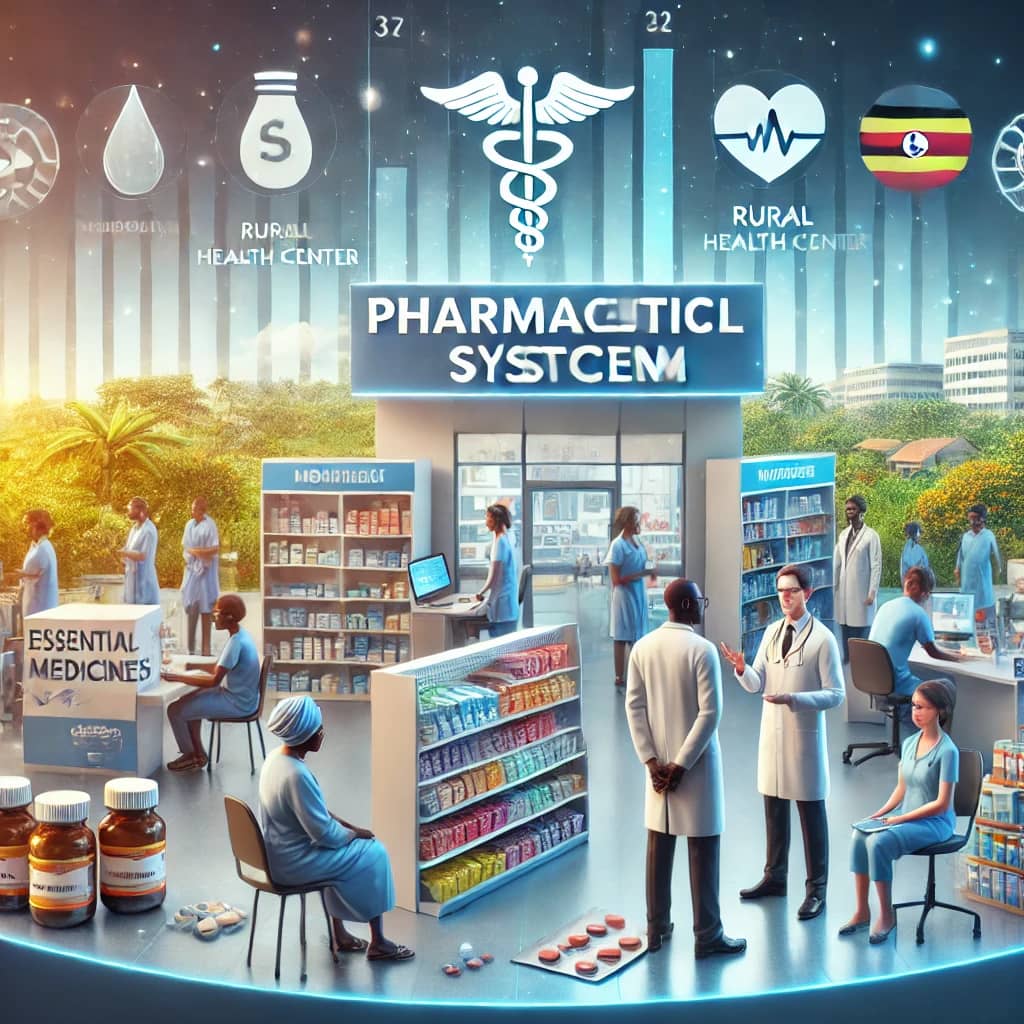
Enhancing Uganda’s Pharmaceutical Industry and Health Sector: Challenges, Opportunities, and Solutions
Analysis by Karim Dad
The health sector is a cornerstone of any nation’s development, and Uganda is no exception. With a growing population and increasing healthcare demands, the pharmaceutical industry plays a pivotal role in ensuring the availability of quality medicines and health products. However, Uganda faces significant challenges in its healthcare delivery system. In this article, we will analyze the current state of the pharmaceutical industry and healthcare sector in Uganda, identify the major challenges, and propose solutions to improve healthcare services and the availability of pharmaceutical products.
Current Landscape of Uganda’s Healthcare and Pharmaceutical Sector
- Growing Demand and Insufficient Infrastructure
Uganda’s healthcare system is under immense pressure from its population growth and the rising burden of both communicable and non-communicable diseases (NCDs). The public health sector accounts for nearly 70% of the population’s healthcare needs, but resource constraints limit its efficiency. - Pharmaceutical Industry Challenges
Limited Local Manufacturing: Only a small percentage of pharmaceutical products are manufactured locally. Uganda relies heavily on imports, which can lead to shortages and higher costs.
Regulatory Weaknesses: Inconsistent enforcement of quality standards results in the circulation of counterfeit and substandard medicines.Distribution Challenges: Rural and hard-to-reach areas often face delays in drug delivery due to poor logistics and infrastructure. - Human Resource Gap
The healthcare workforce is stretched thin, with limited numbers of pharmacists, doctors, and other medical professionals. This scarcity is most acute in rural areas, leaving many Ugandans without access to quality healthcare.
Challenges in Pharmaceuticals Availability and Health Services
- Inadequate Funding: Healthcare spending remains low, at approximately 6-8% of the national budget, which is far below the recommended 15% by the Abuja Declaration.
- Supply Chain Inefficiencies: A fragmented supply chain leads to frequent stockouts of essential medicines in hospitals, clinics, and pharmacies.
- Counterfeit and Substandard Drugs: An estimated 10-30% of medicines in Uganda are counterfeit, jeopardizing patient safety and trust in the healthcare system.
- Weak Health Facilities: Many clinics and health centers lack basic infrastructure, diagnostic tools, and medical equipment.
Solutions for Improving Health Facilities and Pharmaceutical Availability
To address these challenges, a multi-faceted approach is needed to strengthen Uganda’s healthcare and pharmaceutical sectors.
- Strengthening Local Pharmaceutical Manufacturing
Incentivizing Investment: The government should provide tax breaks, subsidies, and grants to encourage local pharmaceutical production.
Technology Transfer: Collaborations with international manufacturers can help transfer technology and improve production capabilities.
Quality Assurance: Strengthening the National Drug Authority (NDA) to enforce rigorous quality control measures. - Improving Healthcare Infrastructure
Modernizing Facilities: Investments should focus on upgrading health centers, hospitals, and diagnostic labs.
Decentralization: Establish more health facilities in rural areas to reduce the distance patients travel for care.
Maintenance Programs: Regularly maintain and update medical equipment to ensure reliability. - Enhancing the Supply Chain
Digital Solutions: Implement technology-driven supply chain systems to track inventory and reduce stockouts.
Public-Private Partnerships (PPPs): Collaborate with private sector logistics companies to improve the efficiency of drug distribution.
Buffer Stocks: Establish regional warehouses with buffer stocks of essential medicines for emergency needs. - Expanding Health Workforce Capacity
Training Programs: Increase funding for medical training institutions to produce more healthcare professionals.
Incentives for Rural Deployment: Offer financial incentives, housing, and career development opportunities to encourage health workers to serve in underserved areas. - Combatting Counterfeit Medicines
Enhanced Surveillance: Use advanced technologies such as blockchain to track the origin and distribution of medicines.
Public Awareness Campaigns: Educate communities on how to identify genuine drugs and report counterfeit products.
The Role of Policy and Community Engagement
Policy Recommendations
- Increase Healthcare Funding: Allocate at least 15% of the national budget to healthcare, with a focus on primary care and pharmaceuticals.
- Regulatory Reforms: Streamline the approval process for new drugs while ensuring strict adherence to quality standards.
- Universal Health Coverage (UHC): Introduce health insurance schemes to reduce out-of-pocket expenses for patients.
Community Engagement
- Empower Communities: Train community health workers to provide basic healthcare and promote preventive measures.
- Promote Health Education: Raise awareness about hygiene, nutrition, and disease prevention through mass media campaigns.
The pharmaceutical industry and healthcare sector in Uganda face numerous challenges, but these are not insurmountable. By prioritizing investment in local manufacturing, improving supply chains, enhancing healthcare infrastructure, and addressing workforce shortages, Uganda can significantly improve healthcare outcomes for its population.
Collaboration between the government, private sector, and international partners is crucial to achieve sustainable growth in the health sector. With a strategic and united approach, Uganda can ensure that quality healthcare and essential medicines are accessible to every citizen, regardless of their location or economic status.
Authored by Karim Dad
With 15 years of experience in sales and marketing in the pharmaceutical industry, Karim Dad specializes in healthcare systems analysis and solutions.
UgandaHealthcare
PharmaceuticalIndustry
HealthSectorReforms
BetterHealthcare
MedicalAccessUganda
PharmaInnovation
HealthSolutions
HealthcareForAll
DrugAvailability
PublicHealthUganda
UniversalHealthCoverage
RuralHealthcare
CounterfeitDrugs
PharmaSupplyChain
HealthInfrastructure
@highlight

